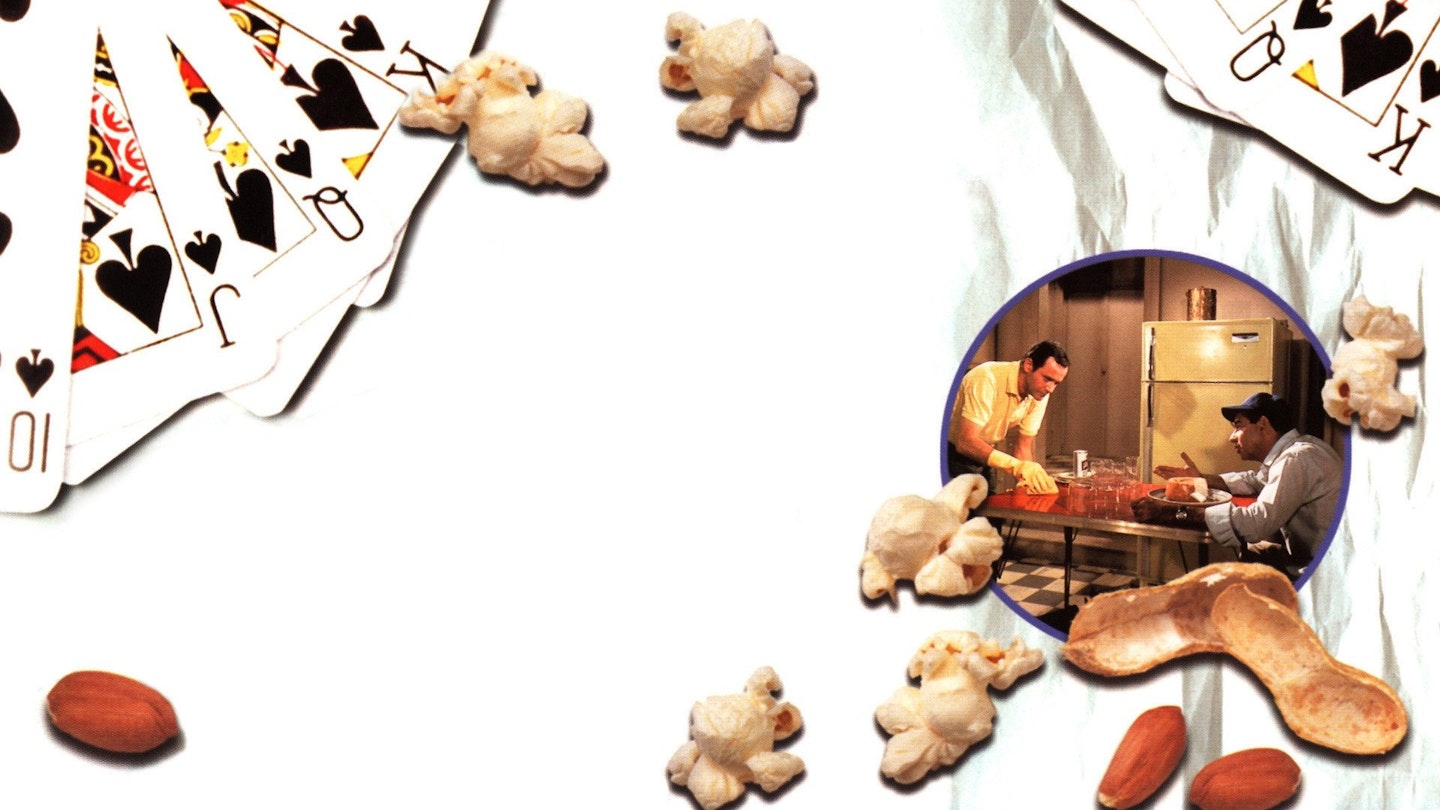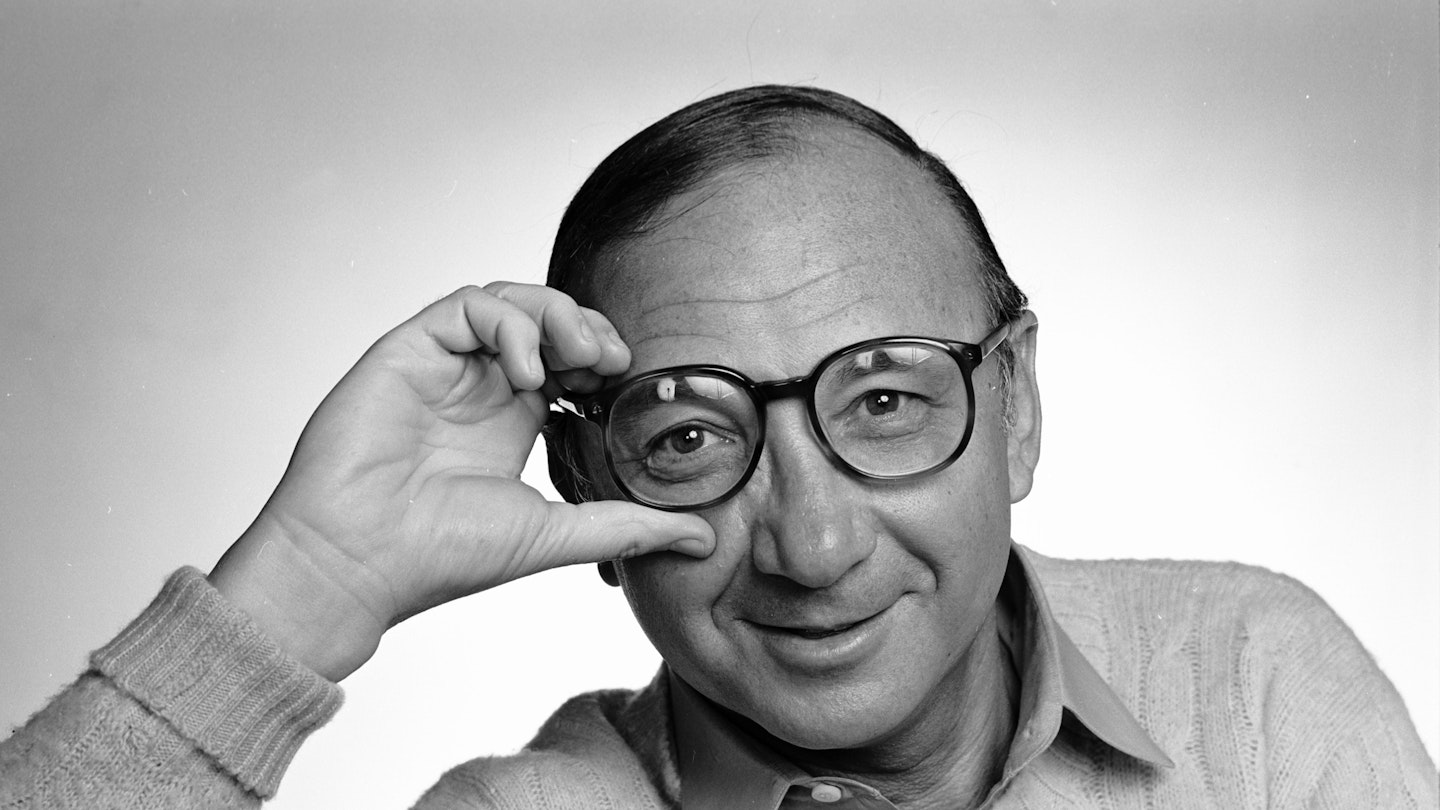In Marlowe (1969), an update of the Raymond Chandler novel The Little Sister, James Garner's sun-tanned private eye gets mixed up in a case which requires that he interview a prissy television exec.
The suspect is worried that the star of his hit sitcom is being blackmailed, but Marlowe is more puzzled by the industry slang and has to have the term "sitcom" explained to him as "situation comedy". Clearly, we now know that a sitcom is a half-hour show with a laugh-track, but a good definition of what it actually means is the sort of thing Neil Simon (who started out writing for perhaps the greatest sitcom of all, Sergeant Bilko) does.
A New York live TV-and-theatre man, Simon writes funny, pointed dialogue you memorise and trot out in real-life to suggest that you're wittier than you are ("Don't point that finger at me unless you intend to use it"), but he is the master of properties where the humour really does come from the situation. Having written a hit play and movie (Barefoot In The Park, 1967) about getting married, Simon followed through with one about divorce, but avoided the predictable marital screaming matches. Instead, he devised a set-up where, as in many sitcoms (cf: Steptoe And Son, Dad's Army, Cheers, The Larry Sanders Show, Red Dwarf, etc.) irreconcilable characters are trapped together, unsure whether they love or hate each other and locked in patterns of behaviour that are funny but also tragic. In the long opening sequence, fussy TV newswriter Felix (Lemmon), just booted out by a wife driven mad by his endless neatening, checks into a hotel to commit suicide (offered a room on the third floor, he asks "Haven't you anything higher?"), then seeks refuge with his already divorced best friend, slobbish Oscar (Matthau). The two share Oscar's apartment and grind up against one other, echoing the way they destroyed their marriages (they both semi-accidentally call each other by their ex-wives' names).
Though this is a widescreen, colourful film - with an irresistibly cool theme by Neal Hefti, creator of the "Da-na-na-na-na-na Batman!" tune - it's almost all set in the spacious apartment. Director Saks merely referees the performances of a couple of pros, working together for the second time after Billy Wilder's The Fortune Cookie (1966), in which they were also trapped together, when shyster lawyer Matthau forced Lemmon to pretend to be wheelchair-bound to make an insurance claim. Their partnership that would extend to Lemmon directing Matthau in Kotch (1971), a couple of Grumpy OldMenpictures (1993,1995), two Wilder disappointments (The Front Page, 1974, Buddy Buddy, 1981) and, sadly, the last gasp of The Odd Couple II (1998).
Matthau chews on Simon's dialogue ("Why doesn't he hear me? I know I'm talking. I hear my voice") as if it were aspirin, while Lemmon plays broader and more physically, clearing his ears with a "fmah fmah" sound compared to a moose-call and twittering around in an apron. Despite Oscar habitually calling his menfriends "pussycat", "baby", "darling" and "dear" and Felix snaps at him for coming home late as the meatloaf he has prepared starts to frazzle, the joke is not that these two middle-aged men are gay but that their nonsexual relationship is falling apart exactly as their marriages did.
The third act brings on two English divorcees with names out of Oscar Wilde, Gwendolyn (Carole Shelley) and Cecily (Monica Evans), for a dinner party Oscar hopes will lead to a good time with "the coo coo Pigeon sisters", but it's Felix who scores, crying about his broken marriage and impressing the women with his sensitivity. The women ó described by the Monthly Film Bulletin as "the kind of congenital English gigglers whom one often sees on buses but seldom on the screen" ó dress mod, but now seem like a rough draft for the kind of characters Mike Leigh would soon make his own. They went to the the real sitcom version, which ran from 1970 to 1975 with Tony Randall and Jack Klugman in the leads, and then again as The New Odd Couple, with black actors Ron Glass and Desmond Wilson.
Simon, Academy Award-nominated for the Odd Couple script, continued in the same vein, with a later play and film (Chapter Two, 1979) about remarriage. With Matthau, he created another grouchy male couple classic, The Sunshine Boys (1975), but with Lemmon he followed the darker implications of the mid-life crisis. He made films that voiced the desperation of the 50s-style buttoned-down Felixes as they were swallowed by the chaos of the 60s and the cynicism of the 70s: The Out-Of-Towners (1970) and The Prisoner Of Second Avenue (1974). The secret of great sitcom is knowing when to shut off the laugh track and feel the pain behind the gag lines.

